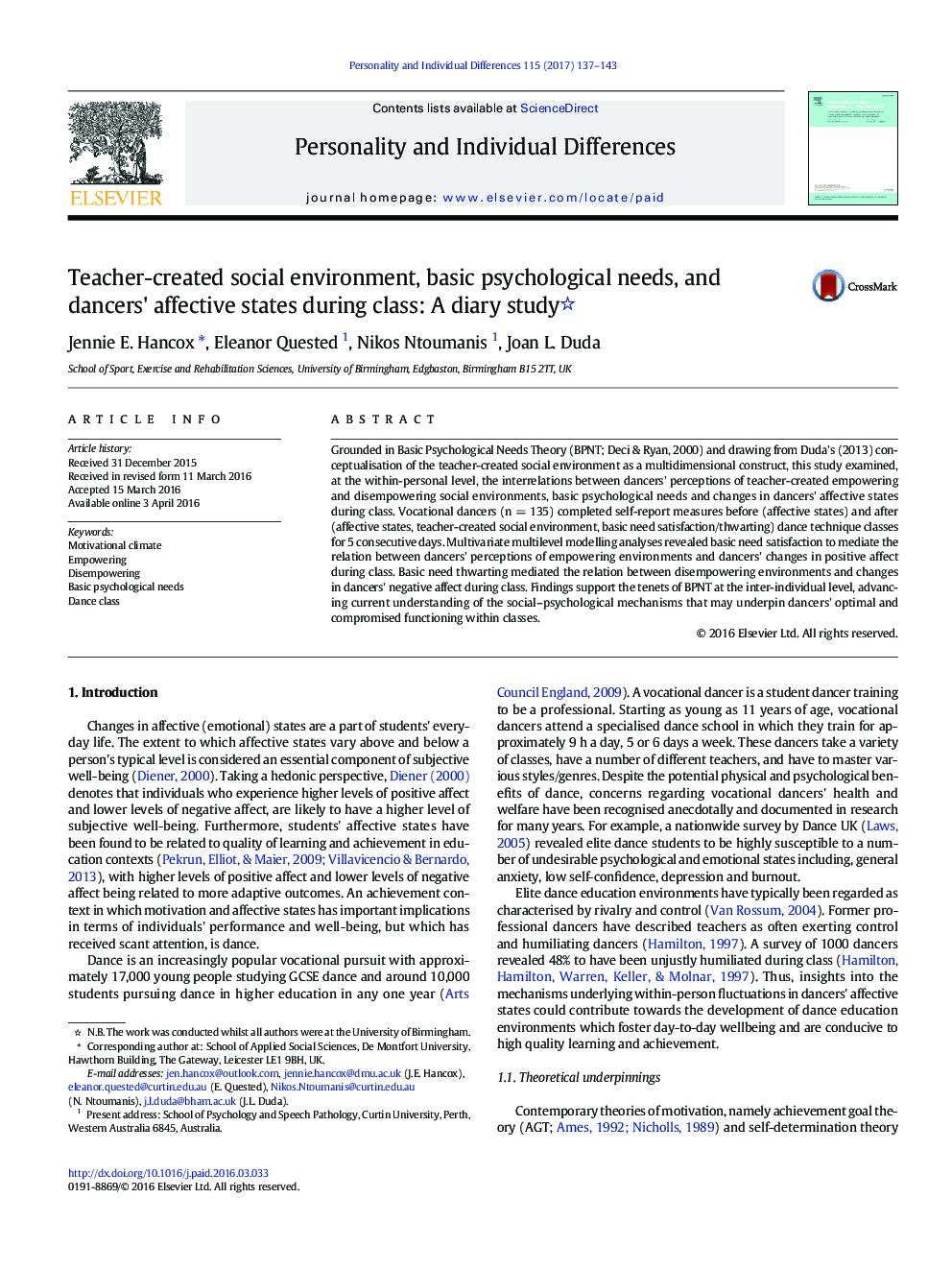| Article ID | Journal | Published Year | Pages | File Type |
|---|---|---|---|---|
| 5035855 | Personality and Individual Differences | 2017 | 7 Pages |
â¢Diary study integrating self-determination and achievement goal theory frameworksâ¢Results support the tenets of basic needs theory at the within-person level.â¢Social environment predicts changes in students' emotional states during class.â¢Basic needs mediate social environment â changes in affective states relationship.â¢Implications for the promotion of students' optimal functioning within classes
Grounded in Basic Psychological Needs Theory (BPNT; Deci & Ryan, 2000) and drawing from Duda's (2013) conceptualisation of the teacher-created social environment as a multidimensional construct, this study examined, at the within-personal level, the interrelations between dancers' perceptions of teacher-created empowering and disempowering social environments, basic psychological needs and changes in dancers' affective states during class. Vocational dancers (n = 135) completed self-report measures before (affective states) and after (affective states, teacher-created social environment, basic need satisfaction/thwarting) dance technique classes for 5 consecutive days. Multivariate multilevel modelling analyses revealed basic need satisfaction to mediate the relation between dancers' perceptions of empowering environments and dancers' changes in positive affect during class. Basic need thwarting mediated the relation between disempowering environments and changes in dancers' negative affect during class. Findings support the tenets of BPNT at the inter-individual level, advancing current understanding of the social-psychological mechanisms that may underpin dancers' optimal and compromised functioning within classes.
